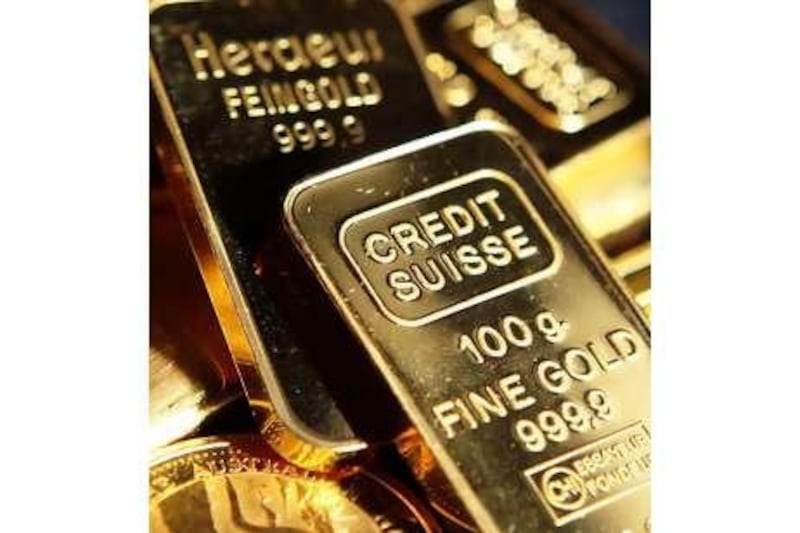There are more than 2,000 tonnes of gold held in the various exchange traded products (ETPs) worldwide. There are a variety of these, and although all are called Exchange Traded Funds, they vary slightly. Basically, however, each share is equivalent to 0.1 ounce of gold and is quoted on a stock exchange. This gives private individuals access to near interbank pricing for gold - particularly important in jurisdictions where there is little history of gold trading.
These instruments are the world's sixth-largest holders of gold after the central banks of the US, France and Germany but ahead of those of Switzerland, China and India. It is a phenomenal achievement for a product that has existed for only seven years. While some investors have criticised the fact that the largest ETP does not allow them to redeem their shares and receive gold bars and others have complained about the high management fee compared with allocated gold, there is no doubt it has attracted a whole new class of investors.
There will have been all sorts of reasons for people to buy gold, but much of the buying is doubtless a reaction to the uncertain world and the seemingly unending slew of headlines reminding us just how dire a state the global financial system is in. Some investors will certainly have bought gold as an insurance policy against the rest of their portfolio. This has sparked some concerns that the ETPs represent an overhang of metal that could be liquidated in times of distress - if stock markets start to fall, gold gets sold to pay for margin calls elsewhere. So gold is no longer a haven in times of maximum stress but instead a victim along with all other investments.
However, perhaps this figure should be looked at as an opportunity instead. The 2,000 tonnes of gold held in the various ETPs sounds like a lot of gold - it is about 80 per cent of the world's annual production. Converting this to a currency amount gives US$77 billion (Dh282.81bn), which still sounds like a lot of money. On the other hand, global wealth has been estimated at $150 trillion. On that basis this gold is just five basis points (0.05 per cent) of worldwide wealth. A paltry sum.
Admittedly, there are myriad other ways of owning the metal - bars, coins, jewellery, allocated gold account, etc. Even if we assume that the ETPs just account for a 20th of gold holdings, we still manage to get to only 1 per cent of global wealth. It might also be argued that the $150tn figure includes all wealth rather than just identifiable wealth and unencumbered investible assets. In this case, five basis points could be 10 or 15 basis points - my shaky rule of thumb above instead becomes 2 per cent or so once all other forms of gold ownership are taken into account.
In the end, it is nigh on impossible to come up with a definitive figure for gold ownership across the world except that it is a fairly insignificant percentage of the world's total wealth. True there will be pockets where large percentages of wealth are held in gold - recent press reports suggest that in India, the aspirational figure is some 20 to 30 per cent - but in other countries this number is likely to be closer to zero. For some investors this will not change - either they do not have the funds to invest or they have no attachment to gold or indeed are sceptical about its historic attributes that are so attractive in today's uncertain climate.
For others, though, the features that are commonly ascribed to gold will be the key that will see them buying the metal - in a number of instances for the first time. Gold is seen as a store of wealth in times of both inflation and deflation, it is no one else's debt - something that is particularly attractive when even the status of European sovereign debt is in some doubt - but most of all gold is a hedge against uncertainty.
And while that is something we have in abundance, I am not a subscriber to some of the more outlandish fears that I have heard expressed - including by people who have bought physical gold and are ripping up their gardens to replace them with vegetables in preparation for the "inevitable" social unrest - but I do believe that the malaise we have seen since the credit crunch started in the summer of 2007 will continue.
This will cause an increasing number of people to buy gold, and the only way to inflate supplies of this metal is to dig new mines - so we face the prospect of more money chasing static supplies of the metal, and it is this that will provide the next leg of gold's move higher. Jonathan Spall is director of commodities at Barclays Capital and is based in London business@thenational.ae





